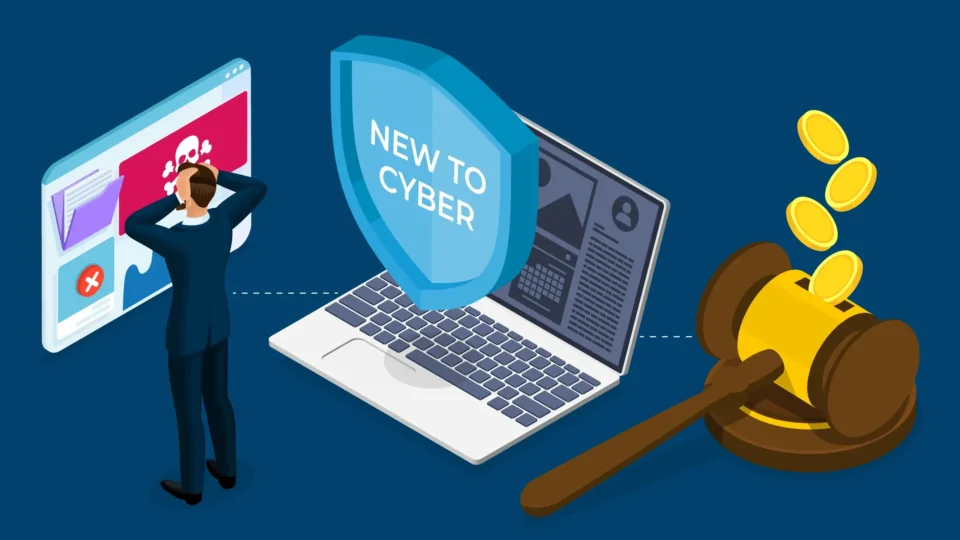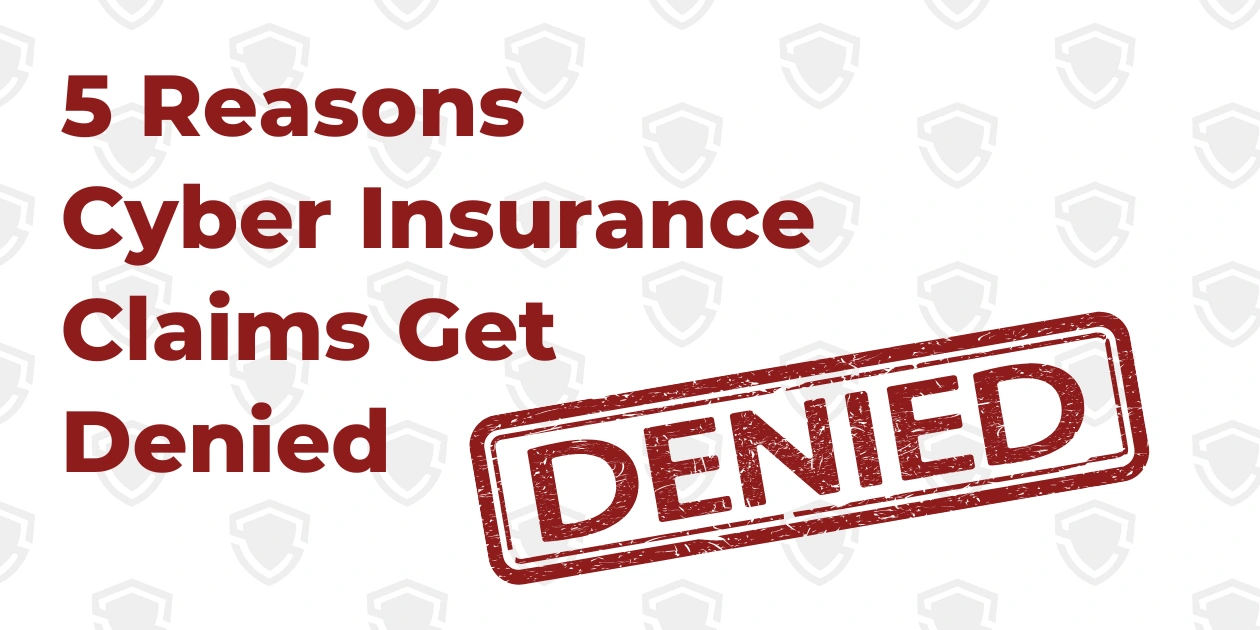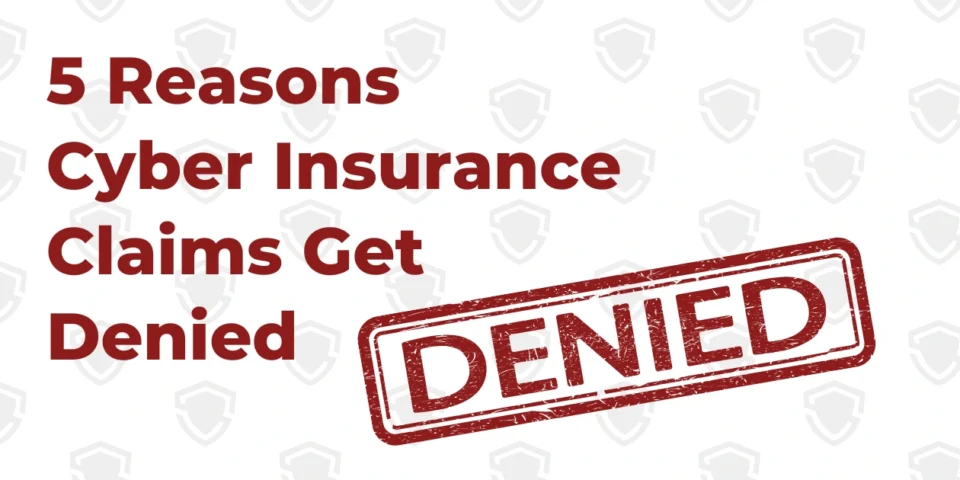Navigating Cyber Insurance Claims
Organizing your affairs is crucial, especially when it comes to cyber insurance claims. This tech tip will help you understand the common reasons for claim denials and provide expert guidance on how to prevent them. By proactively addressing these issues, you can protect your business and ensure smoother claims processing when needed.
Understanding the intricacies of cybersecurity insurance is crucial for businesses aiming to manage risks associated with cyberattacks and data breaches. Cyber insurance provides essential insurance coverage to protect against financial losses resulting from such incidents. However, it is important to understand cyber risk in the context of cyber insurance, as effective management of cyber risk is integral to securing comprehensive coverage and mitigating damage from attacks. This article delves into the common reasons why cyber insurance claims get denied and offers insights on how to avoid these pitfalls.

Introduction to Cyber Claims
Cyber insurance claims are an essential aspect of any business’s risk management strategy, providing financial protection against cyber-related losses. As cyber threats continue to evolve and increase in frequency, understanding the cyber claims process is crucial for businesses to respond and recover from cyber incidents effectively. Cyber insurance policies can help mitigate the financial and reputational risks associated with data breaches, cyber attacks, and other cyber events. By analyzing cyber claims, businesses can identify patterns and trends in attacks, enabling them to make informed decisions about their cybersecurity strategies.
Navigating Cyber Insurance Claims
Organizing your affairs is crucial, especially when it comes to cyber insurance claims. Legal services play a vital role in navigating these claims, helping organizations address costs associated with investigations and remediation after a cyberattack or data breach. This tech tip will help you understand the common reasons for claim denials and provide expert guidance on how to prevent them. By proactively addressing these issues and ensuring your cyber insurance policy cover is comprehensive, you can protect your business and ensure smoother claims processing when needed.
Understanding Cyber Incidents
Cyber incidents, including data breaches and cyber attacks, can have a significant impact on a business’s finances and reputation. Cyber insurance policies can provide coverage for business interruption, lost income, and crisis management, helping businesses to respond and recover from cyber incidents. It is essential for businesses to understand the types of cyber incidents that can occur, including ransomware attacks, and to have a plan in place to mitigate the risks. Cyber insurers can provide guidance and support to help businesses navigate the complex process of responding to a cyber incident. By having a comprehensive cyber insurance policy in place, businesses can ensure they have the necessary coverage to protect against cyber risks.
Cyber Insurance Policy Details
A cyber insurance policy can provide a range of coverage options, including first-party and third-party coverage. First-party coverage protects a business’s own data and systems, while third-party coverage protects against liability for damages to others. Cyber insurance policies can also provide coverage for extra expenses, such as legal fees and crisis management costs. It is essential for businesses to carefully review their cyber insurance policy to ensure they have the necessary coverage to protect against cyber risks. By understanding the details of their cyber insurance policy, businesses can ensure they are adequately protected in the event of a cyber incident.
The Cyber Insurance Claim Process
The cyber insurance claim process can be complex and time-consuming, requiring businesses to provide detailed information about the cyber incident. It is essential for businesses to notify their insurer as soon as possible after a cyber incident occurs, to ensure they can receive the necessary guidance and support. Cyber insurers can provide access to a range of services, including legal counsel and crisis management expertise, to help businesses respond and recover from cyber incidents. By understanding the cyber insurance claim process, businesses can ensure they are prepared to respond effectively in the event of a cyber incident, and can minimize the financial and reputational risks associated with cyber attacks. Cyber insurance claims can help businesses to recover from the financial losses caused by a cyber attack, and can also provide liability protection against third-party claims.
5 Reasons Claims Get Denied
Insufficient Prevention Practices
What it means: Insufficient prevention practices refer to a lack of security measures to defend against cyber threats, such as weak firewalls, outdated software, or poor employee training.
Recommendation: Strengthen your security measures. If you’re uncertain where to begin, a network assessment is a great first step. Reach out to Prime Secured for complimentary network assessment to thoroughly evaluate your IT infrastructure.
Issues Related to Third-Parties or Contractors
What it means: These issues arise when third-party vendors or contractors fail to meet cybersecurity standards, potentially exposing your business to vulnerabilities.
Recommendation: Thoroughly vet your current and potential service providers. Choose partners who prioritize cybersecurity.
Errors in Documentation
What it means: Errors in documentation occur when there are inaccuracies or incomplete records of losses, damages, or claims-related activities, which can lead to claim denials.
Recommendation: Maintain records of all losses and associated costs to support your claims.
Failure to Document Preventative Measures
What it means: Failure to document preventive measures means not having a record of the cybersecurity policies, procedures, and training in place to prevent breaches.
Recommendation: Ensure comprehensive documentation of all cybersecurity policies and procedures, covering staff training, incident management, and provide evidence of their implementation.
Check out this blog for how to get started with effective cybersecurity training.
Limitations in Coverage Post-Interruption
What it means: Some insurance policies may limit coverage for losses that occur after a business interruption, especially if preventive measures were not in place beforehand.
Recommendation: Fully understand your policy terms and consider negotiating for extended coverage. Keep an updated and effective recovery plan in place.
Protect Your Business
By addressing these common pitfalls, you can strengthen your cybersecurity posture and ensure that your cyber insurance claims are more likely to be approved. Taking proactive steps now can save your organization time, money, and unnecessary headaches in the event of an incident.
Download our concise guide, and share these insights with your organizational leaders to help them make informed decisions and improve your company’s overall cybersecurity strategy.




